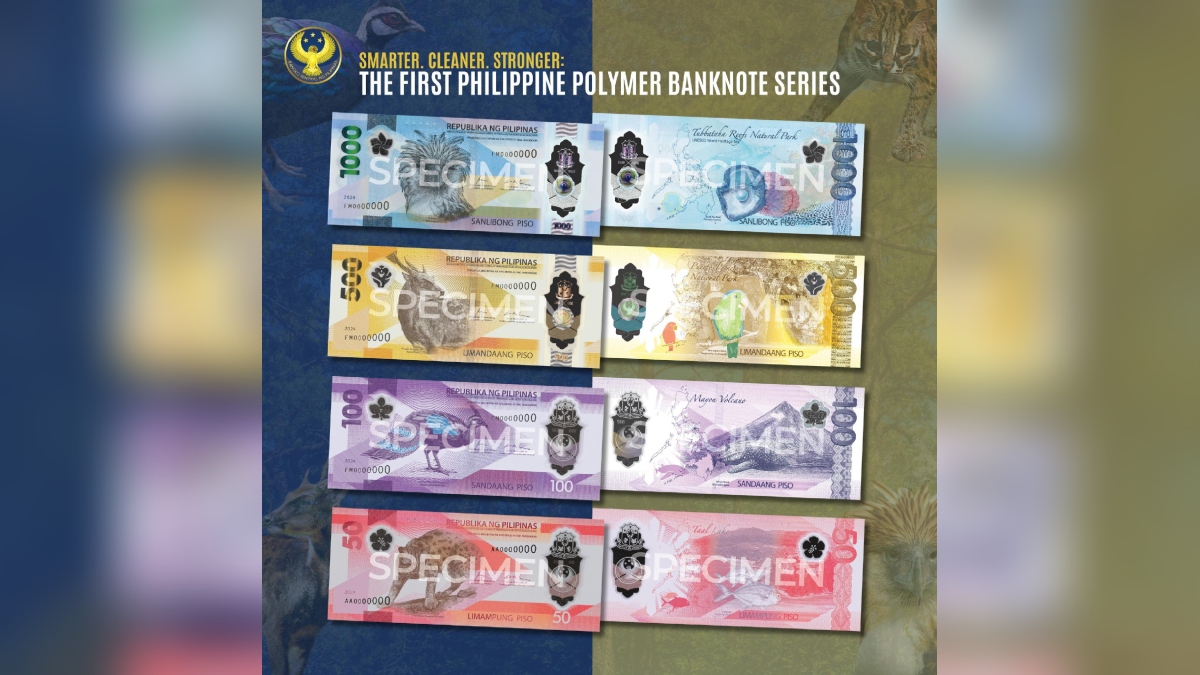A Bangko Sentral ng Pilipinas (BSP) survey revealed that 61.3% of Filipinos support the shift to polymer banknotes, a significant increase from the 10.9% recorded in the previous year. The findings were part of the Consumer Expectation Survey conducted in the first quarter of 2024.
The BSP unveiled new polymer banknotes earlier this month in P500, P100, and P50 denominations. These feature local wildlife and weave designs, a departure from the traditional depictions of national heroes. The new bills will initially be available in limited quantities in the Greater Manila Area this December and are set for nationwide circulation by early 2025.
Critics, including the August Twenty-One Movement (ATOM) and Kiko Aquino Dee, voiced concerns over the redesign, arguing that it diminishes the recognition of historical figures. Dee, a grandson of former President Corazon Aquino and Senator Ninoy Aquino Jr., linked the change to efforts initiated under the Duterte administration.
In response, the BSP assured the public that the existing paper banknotes featuring heroes will remain in circulation. The central bank emphasized the advantages of polymer bills, citing their advanced security features, resistance to damage, and longer lifespan of up to 7.5 years compared to the 1.5 years of paper notes. Additionally, polymer notes are more environmentally sustainable, with a 38.36% lower global warming potential.
Since the introduction of the P1,000-polymer banknote in 2022, public acceptance has steadily risen, with 68.3% of survey respondents approving of it this year. BSP data also showed fewer counterfeit incidents with polymer bills compared to paper notes.
“The smarter, cleaner, and stronger characteristics of polymer banknotes ensure their reliability and durability,” the BSP stated.






